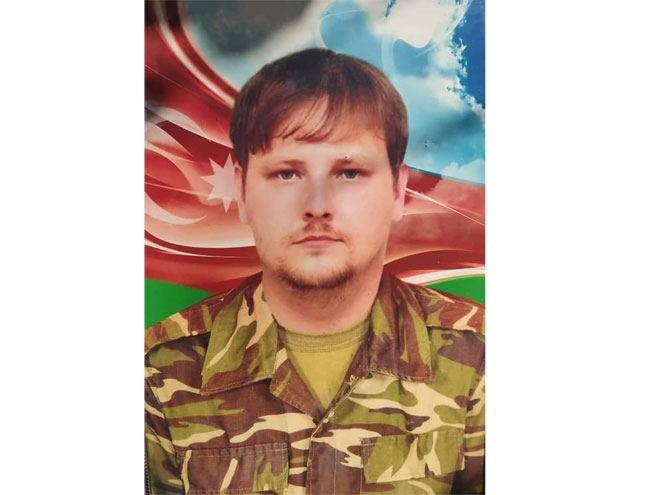Azerbaijani citizen, ethnic Russian, died defending his homeland Azerbaijan

By Trend
Denis Pronin, an Azerbaijani citizen of Russian origin, who died defending his homeland, was a native of Baku.
Pronin had two sisters and one brother. His father, Alexander, was an oil worker, and his mother worked as a clerk at a concrete production plant, Trend reports.
Denis graduated from secondary school N 59 in the city of Baku. A year later he went to military service in Ganja which was recently attacked by the Armenian Armed Forces.
His wife Aynur said that acquaintance with Denis happened quite by chance, but soon a warm relationship arose between them.
When they decided to get married, their families didn't object. A year later, their daughter Alina was born.
“He was an exemplary family man. He had big plans for his family and daughter. His biggest dream was to raise his daughter, to give her a higher education. He was a very devoted friend! He could unexpectedly gather friends and take them to the countryside or the seaside. He was a very sociable man,” siblings of Denis noted.
His comrades in arms told that he was a very cheerful, positive, absolutely fearless person. He raised their morale. Sitting in the trenches, he joked, telling anecdotes.
Denis was wounded in the head on October 8 in one of the heavy battles in the Fuzuli direction of the front line. Even though comrades took him out of the front line, it was not possible to save his life.
Aynur said that they received information that he was killed the same day.
“On October 9, a lot of people gathered around our house. Hundreds of people came with the flag of Azerbaijan in their hands,” she said. “It was hard, but I had to pull myself together since so many people came to farewell with Denis. I began hugging the coffin, wrapped in the Azerbaijani flag. The only thing that calms me down is that Denis became a martyr defending Azerbaijan. His daughter will proudly say that her father Denis died for Karabakh.”
Denis was buried according to the Orthodox tradition, observing all the rituals. The burial ceremony was attended by the cleric of the Church of St. Michael the Archangel, Archpriest Andrey Bezotosny. Everyone who came paid their last respects to him with applause.
Armenian Armed Forces launched a large-scale military attack on positions of the Azerbaijani army on the front line, using large-caliber weapons, mortars, and artillery on Sept. 27.
Azerbaijan responded with a counter-offensive along the entire front. As a result of retaliation, Azerbaijani troops liberated several territories previously occupied by Armenia, as well as take important, strategic heights under control.
The fighting continued into October 2020, in the early days of which Armenia has launched missile attacks on Azerbaijani cities of Ganja, Mingachevir, Khizi as well as Absheron district.
Following almost two weeks of intensive military confrontations, Armenia and Azerbaijan, through Russia's mediation, have agreed on a temporary ceasefire for humanitarian purposes, for exchange of prisoners of war as well as bodies of the dead.
The conflict between the two South Caucasus countries began in 1988 when Armenia made territorial claims against Azerbaijan. As a result of the ensuing war, Armenian armed forces occupied 20 percent of Azerbaijan, including the Nagorno-Karabakh region and seven surrounding districts.
The 1994 ceasefire agreement was followed by peace negotiations. Armenia has not yet implemented four UN Security Council resolutions on the withdrawal of its armed forces from Nagorno Karabakh and the surrounding districts.
---
Follow us on Twitter @AzerNewsAz
Here we are to serve you with news right now. It does not cost much, but worth your attention.
Choose to support open, independent, quality journalism and subscribe on a monthly basis.
By subscribing to our online newspaper, you can have full digital access to all news, analysis, and much more.
You can also follow AzerNEWS on Twitter @AzerNewsAz or Facebook @AzerNewsNewspaper
Thank you!
